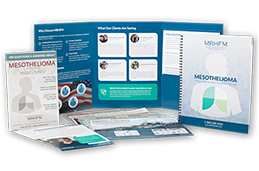Innovative Biopsy Method Could Minimize Risks, Costs for Mesothelioma Patients
The costs associated with any type of cancer treatment can be daunting. For rare cancers such as mesothelioma, the expense can be even more overwhelming. This is one of the many reasons why researchers are on a constant quest to develop less expensive ways to diagnose and treat patients. One way is to develop tests and treatments that are minimally invasive or options that do not require surgery at all.
Currently, new and innovative biopsy methods are being explored to detect malignant pleural mesothelioma (MPM) with nominal risks and at a lower cost. According to a new study published in the Journal of CardioVascular and Interventional Radiology, percutaneous image-guided biopsies might be the answer. Before we look at the study findings, it is important to understand what traditional biopsy methods for MPM involve. The most common methods include endoscopic biopsies such as thoracoscopy and open surgical biopsies.
Thoracoscopy uses an endoscope called a thoracoscope to look at areas inside the chest and take tissue samples for biopsies. The procedure, which is also used to keep fluid from building up in the chest, is done in the operating room under general anesthesia (in a deep sleep). Per the American Cancer Society, “the doctor inserts the thoracoscope through one or more small cuts made in the chest wall to look at the space between the lungs and the chest wall. This lets the doctor see possible areas of cancer and remove small pieces of tissue to look at under the microscope. The doctor can also sample lymph nodes and fluid and see if a tumor is growing into nearby tissues or organs.”
Noted risks of thoracoscopy include wound infection, bleeding, air leak through the lung wall, which would require a longer hospital stay, pain or numbness at the incision site, and inflammation of the lungs (pneumonia).
When endoscopic biopsies aren’t enough to make a diagnosis, an open surgical biopsy is needed. Though it is among the most accurate ways to diagnose MPM, open surgical biopsy is an even more invasive procedure. The surgeon must make an incision in the chest (thoracotomy) or an incision in the abdomen (laparotomy) so that a larger sample of tumor (or even the entire tumor) can be removed. Some noted risks of open surgical biopsy include infection, blood loss or clots, pain or discomfort, and pneumonia.
The new study, A Single-Institution Experience in Percutaneous Image-Guided Biopsy of Malignant Pleural Mesothelioma, assessed the diagnostic sensitivity of percutaneous image-guided biopsy for diagnosis of pleural mesothelioma. Led by Dr. Brian T. Welch of the Department of Radiology at Mayo Clinic, the study “identified 32 patients with a confirmed diagnosis of pleural mesothelioma who underwent image-guided needle biopsy between January 1, 2002, and January 1, 2016. Patient, procedural, and pathologic characteristics were recorded. Complications were characterized via standardized nomenclature [Common Terminology for Clinically Adverse Events (CTCAE)].”
The results showed that “percutaneous image-guided biopsy was associated with an overall sensitivity of 81%. No CTCAE clinically significant complications were observed. No image-guided procedures were complicated by pneumothorax or necessitated chest tube placement. No patients had tumor seeding of the biopsy tract.”
Conclusion
Percutaneous image-guided biopsy can achieve high sensitivity for pathologic diagnosis of pleural mesothelioma with a low procedural complication rate, potentially averting the need for surgical biopsy. This helps patients avoid the discomfort and risks that more aggressive approaches involve, as well as the costs of care associated with the disease.
Sources
Ferreiro, Lucia, Juan Suarez-Antelo, and Luis Valdes. "Pleural Procedures in the Management of Malignant Effusions." Annals of Thoracic Medicine 12.1 (2017): 3. U.S. National Library of Medicine, National Institutes of Health (NIH). Web. 15 Mar. 2017.
"How Is Malignant Mesothelioma Diagnosed?" American Cancer Society. American Cancer Society, Inc., 2017. Web. 15 Mar. 2017.
"Thoracoscopy Risks and Complications." University of Southern California Department of Surgery. CardioVascular Thoracic Institute, Keck School of Medicine of USC, n.d. Web. 15 Mar. 2017.
Welch, B.T., Eiken, P.W., Atwell, T.D. et al. Cardiovasc Intervent Radiol (2017). doi:10.1007/s00270-017-1583-7



